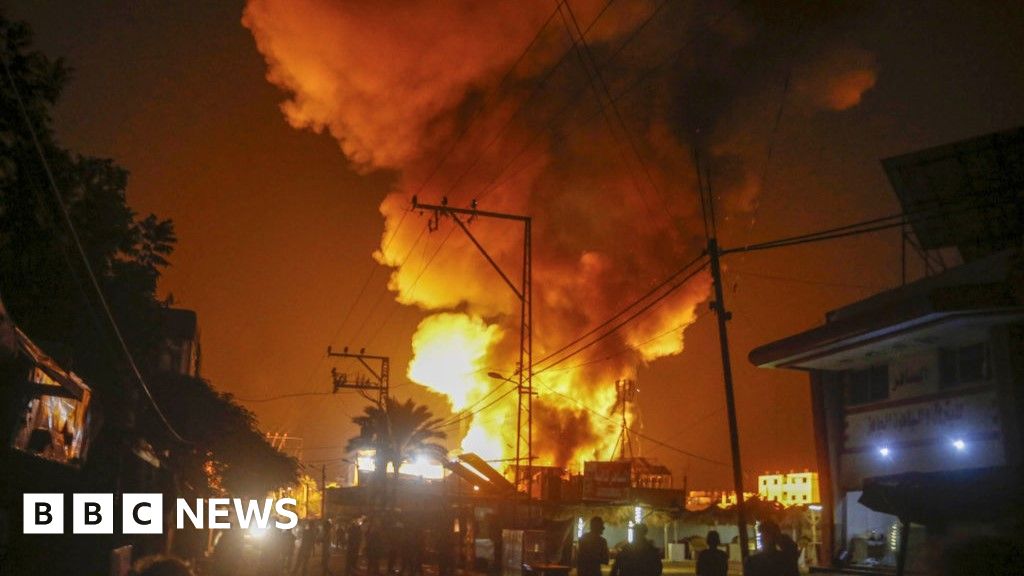Witnesses said the strike happened at about 01:15 local time on Monday (23:15 BST on Sunday).
It hit an area between buildings filled with makeshift shelters, next to an outdoor outpatient waiting area that had no one there at night, Anna Halford, MSF’s emergency coordinator in Gaza who was not at the hospital during the strike, said in a phone call from Deir al-Balah.
Hiba Radi, a mother who was living in a tent behind the hospital, told a BBC freelancer in Gaza she woke up to the sound of “explosions and fires erupting around the tents”.
“There were explosions everywhere, and we were shocked at whether this was gas or weapons,” she said.
“This is one of the worst scenes we’ve witnessed and lived through,” she added. “We’ve never seen destruction like this before. It’s hard, really hard.”
Atia Darwish, a photographer who recorded some of the verified videos, told the BBC it was a “big shock” and he was “unable to do anything” watching people burn.
“I was so broken down,” he said.
Um Yaser Abdel Hamid Daher, who also lives at the hospital, told the BBC “we’ve seen so many people burning that we started feeling like we might burn like them”.
The injured included her son, and his wife and children. Her granddaughter Lina, 11, who had shrapnel in her hand and leg injuries, said she had heard people screaming.
”Our neighbour’s daughter was injured in her head and her dad was killed. And our other neighbours were killed. The people next to us tore down the tent to get us out,” she said.
Her grandmother said the family “lost their tent and everything they had; they have nothing left”.
The health ministry reported on Monday that more than 40 people were injured and four killed.
MSF on Tuesday shared a higher toll, saying five people had died, their bodies burned by the time they were recovered, and 65 injured.
Forty of the injured – 22 men, eight women and 10 children – stayed at al-Aqsa. The others were transferred to different hospitals, with eight going to a specialist burns unit.
Ms Halford said her colleagues were treating burns victims ”who will almost certainly not survive”, saying “there is very little you can do for burn victims of that severity”.
“You come home with the smell of it on your clothes. It’s a viscerally affecting experience. It stays with you,” she said.
Monday’s strike was the seventh on the hospital site since March, and the third in two weeks, Ms Halford said.
When she arrived at the hospital after the most recent hit, she said she found people picking through twisted metal and burned debris to salvage any belongings.
Another mother the BBC spoke to whose children suffered burns injuries had already evacuated from north Gaza – and now has nothing.
The acting chief of the UN’s Office for the Coordination of Humanitarian Affairs said the strike occurred in an area where north Gaza residents had been told to relocate.
“There really is no safe place in Gaza for people to go,” the statement read.
Additional reporting by Haneen Abdeen

